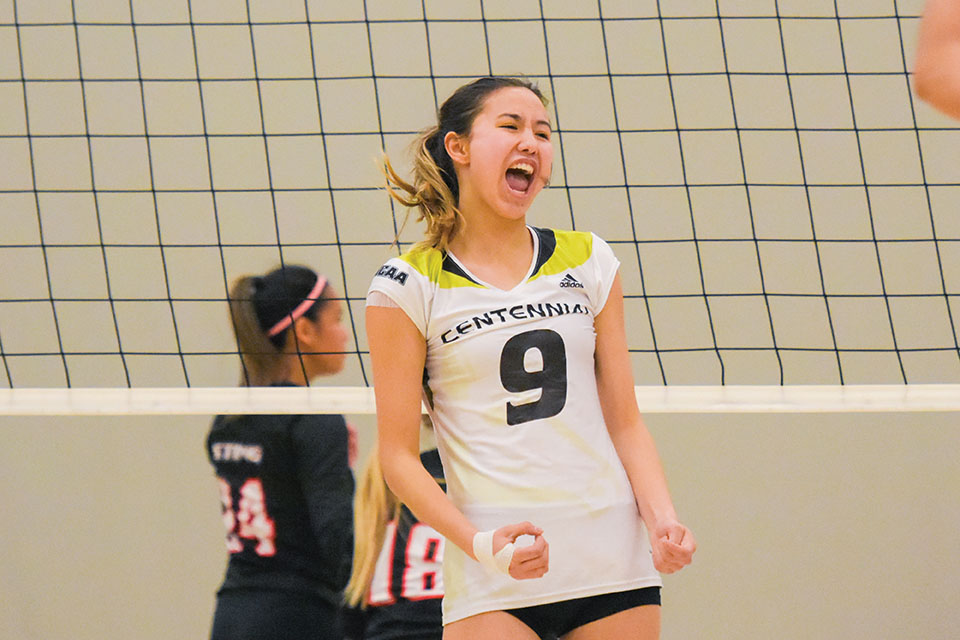By Rick Woodward
Athletes often play as part of a team. They’re part of a group, a collective unit that’s striving for a common goal. The needs of the team outweigh the needs of any individual player.
At the same time, Western culture prioritizes individuality. “Be yourself” is a very common saying.

For some athletes, this may seem like a dichotomy. But for Liv Thomson, being part of a team is at the core of her individuality.
She says,standing out on the court is not only part of her game, but part of her personal identity as well. She leads by example on the court through a combination of flashy gear and a physical, in-your-face style of play.
“For my shoes, it has to have something that’s like ‘BAM’, like, ‘Look at me’, you know? So right now, I’m rocking the LeBrons and they’re multi-coloured,” says Thomson.
“They match my personality a lot, cause I’m very bubbly, outgoing, loud. And I’m very unique, I like doing things that might not necessarily be correct, but I can find a way to make it correct,” she says.
“I’m one of the vets, there’s two of us that have played for five years. So, a lot of people look up to us because we’ve been in the league for so long, we know how things run, we know how people are. They look at us for guidance,” says Thomson.
Another aspect of an athlete’s individuality that some may take issue with is their style of play. Basketball is not a contact sport, but it can still get physical. Thomson is the type of player who embraces the physical side of her sport, incorporating it into her game and her on-court identity.
“If we’re playing defence and someone comes in my vicinity, then I hit them or I box them out, so that they don’t want to come back in to deal with it again,” she says.
She points out the various bruises she has as well. “Yesterday for example, at our game, I’m a very big communicator. So, as soon as my player walked on the court, I repeated about 8,000 times ‘I have four, I have four… number four is mine,’ and I could hear on the other bench, they were saying, ‘This girl is so annoying.’”
On the other hand, some superstar players, prefer to fly under the radar. Those athletes like to keep it low-key and let their performance speak for itself as they quietly lead their team, while still garnering attention from the rest of the league.
“I wouldn’t say that I try to draw attention towards myself, because it is a team sport and I wouldn’t be able to do what I do without my teammates,” says Emily Joe, a Centennial’s women’s volleyball team player.
“I like being an aggressive player in the sense of always trying to think ahead, try to run different plays and always try to do my position to the best of my ability, because I know when I do that, it helps everybody else on the court as well,” Joe says.
A positive attitude can go a long way towards a successful season, and Joe sees herself as the type of leader that keeps her club ready to continue working hard.
“I try my best to be the one person who can always bring positive energy when it’s needed, cause with positive energy, your team plays better, it’s more fun. I’m always trying to bring that to the team,” she says.
“Volleyball is played by introverts and extroverts, so a lot of people that would be quiet [and] in their shell, I’m always trying to bring them out of their shell in a sense, kind of with the intention of bringing the team together as a whole,” she says.
Sports are a form of theatre and the athletes are the performers. Every performance has somebody in the starring role, with several supporting roles sprinkled in. While some performers like to be over the top and make their presence known, others prefer to conduct their business in a quieter manner. But at the end of the day, they are just one cog in the machine, chugging along with the goal of a championship trumping their own personal goals.

